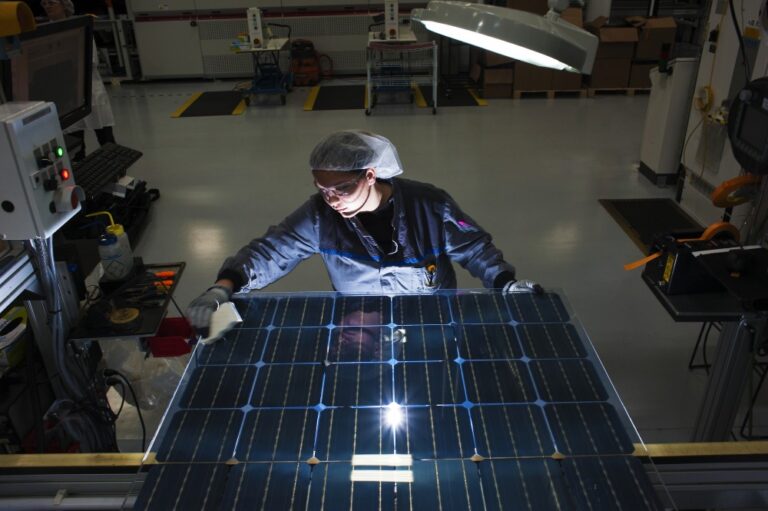The US government now accepts this comments on a proposed waiver of the Build America, Buy America Act. The departments. of Energy, Agriculture and Housing and Urban Development, along with the Environmental Protection Agency, have all proposed a one-year waiver of manufactured product requirements for domestically assembled solar panels used in federal infrastructure projects. Due to the lack of domestically assembled solar panels with U.S. components, the groups are proposing to waive their required use through December 31, 2025.
The “Buy America” preference was established as part of the Infrastructure Investment and Jobs Act signed by President Joe Biden in 2021. It requires that all iron, steel, manufactured products and construction materials used in infrastructure projects that receive federal financial assistance are produced in the United States. Solar panels must be assembled in the United States and 55% of the total cost of components must be sourced, produced or manufactured domestically.
According to the Energy Analysis Department, the cost of a solar cell is estimated at 67% of the total module cost. The second most expensive part is the metal frame with a share of 10%. Solar cells are “not likely…available from US manufacturers in sufficient quantities until December 2025 or later,” and “metal frames…are not expected to be available in large quantities from anywhere. with the exception of China for several years,” the DOE and the other government groups have proposed waiving the law’s requirements.
The groups said that while the United States currently has 10.6 GW of annual thin-film production capacity and 47 GW of annual silicon capacity, the country produces far less. Due to foreign competition, labor shortages and outdated production equipment, the groups estimate that 3.7 GW of silicon solar panels were actually produced and sold in 2023, despite a nominal capacity of 15 GW.
Domestic production of silicon solar cells has just restarted (Suniva in Georgia), and more companies should start production in 2025 (Qcells, Silfab, etc.). The government groups are confident that future growth in domestic production will result in more Build America, Buy America-compliant modules after the waiver expires.
Mike Carr, executive director of the Solar Energy Manufacturers for America (SEMA) Coalition, said in a statement that he disagreed with the waiver and believes the federal government should pay more attention to foreign players setting up U.S. manufacturing operations.
“While we appreciate the balance the administration is trying to achieve by supporting rapid energy deployment, U.S. solar producers will have ample capacity to support these projects over the next three years,” he said. “At a minimum, the administration should impose Foreign Entity of Concern (FEOC) restrictions before making these waivers permanent so that Chinese companies that assemble solar panels in the United States do not receive U.S. taxpayer dollars through government purchases.”
The waiver, proposed until the end of 2025, would require solar panels (permanently attached to an outdoor support structure at the project site) to be installed by June 30, 2026.
The federal government will accept comments on the waiver through December 28, 2024. Comments should be sent to the email address included in the announcement of distance.


